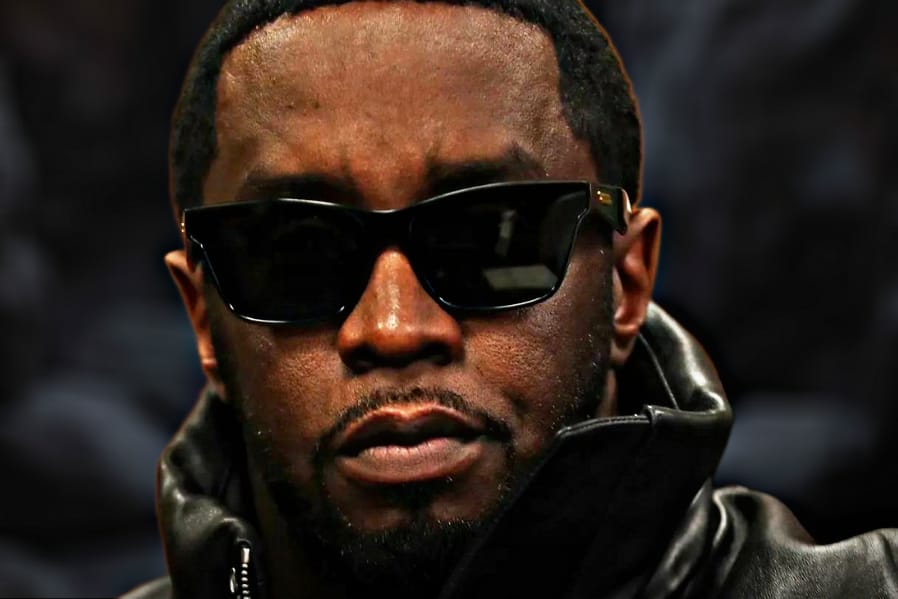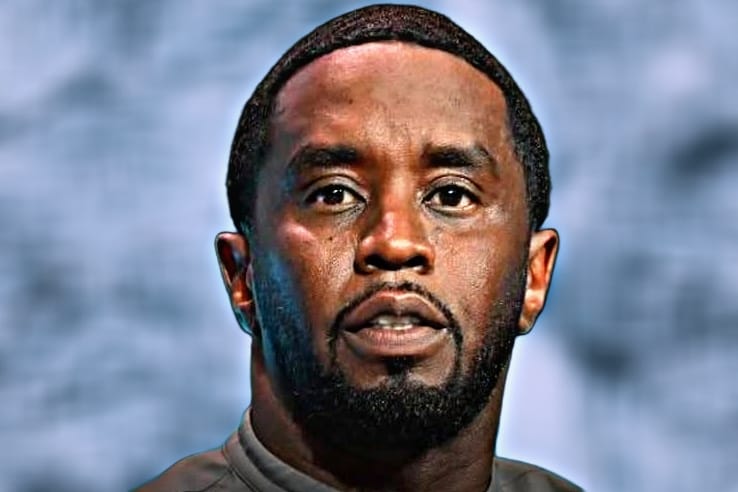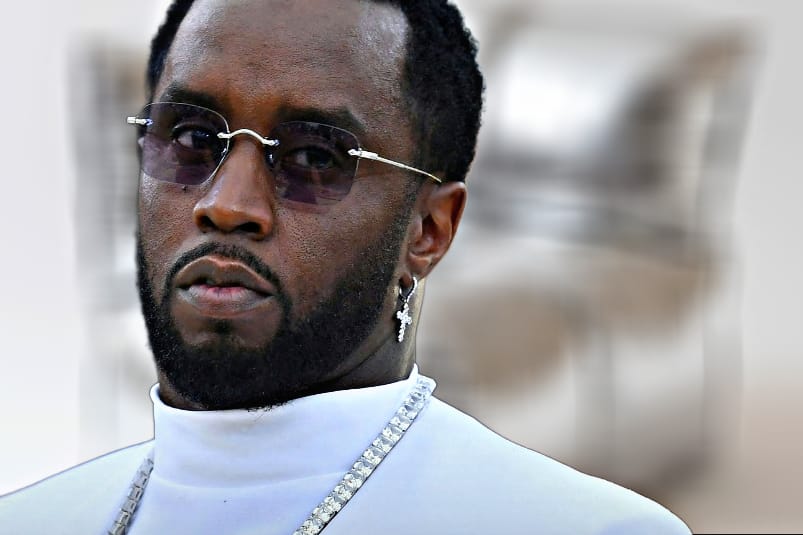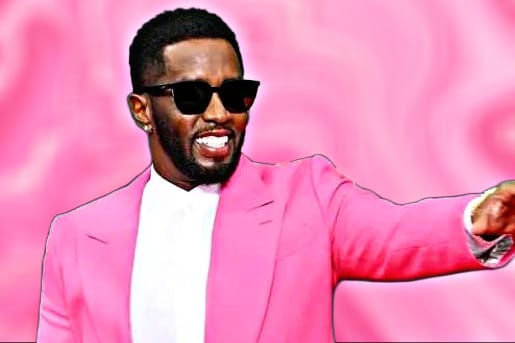When one thinks of the most influential figures in the world of entertainment, music, fashion, and business, P. Diddy (born Sean Combs) undoubtedly stands at the forefront. From his rise in the music industry as a producer to becoming one of the wealthiest and most powerful moguls in the entertainment world, P. Diddy’s career is a testament to his relentless ambition, resilience, and multifaceted talent. This article will explore P. Diddy’s journey, from his humble beginnings to his status as a global icon, while highlighting his contributions to music, business, and culture.
Who is P. Diddy?
P. Diddy, whose real name is Sean John Combs, is an American entrepreneur, rapper, producer, actor, and fashion mogul. Born on November 4, 1969, in Harlem, New York City, Diddy’s journey to stardom has been marked by his entrepreneurial spirit and an unwavering commitment to success. He is best known for founding Bad Boy Records, where he launched the careers of numerous prominent artists and reshaped the hip-hop and R&B scenes of the 1990s and beyond.
But P. Diddy is far more than just a music producer and rapper. He has also built a highly successful business empire, which includes ventures in fashion, media, beverages, and spirits. Over the years, P. Diddy has amassed a fortune and built a legacy that spans multiple industries, making him a true entertainment mogul.
Early Life and Beginnings in the Industry

Sean Combs was born in Harlem, New York, but raised in Mount Vernon, New York. He grew up in a modest household, with his mother, Janice, and his father, Melvin Combs, who was a prominent figure in the local community. Tragically, Diddy’s father was murdered when he was just 2 years old, a traumatic event that shaped his drive and ambitions later in life.
Combs attended Howard University in Washington, D.C., where he studied business. While at Howard, he honed his interest in music and entertainment. He eventually dropped out of college to pursue a career in the music industry, a decision that would prove to be life-changing. His early career began with internships at Uptown Records, where he learned the ropes of the industry by working with high-profile artists like Mary J. Blige and Jodeci. It was here that he developed his skills as a producer and began to create his own unique sound.
The Birth of Bad Boy Records and the Rise to Fame
In 1993, P. Diddy left Uptown Records and founded his own label, Bad Boy Records. The move was bold and risky, but it would soon pay off in extraordinary ways. Bad Boy Records became home to some of the biggest names in hip-hop, R&B, and pop, and helped shape the musical landscape of the 1990s and early 2000s.
Diddy’s first major success came with The Notorious B.I.G., who became a superstar under the Bad Boy label. Biggie’s debut album, Ready to Die (1994), was a critical and commercial success, and it set the stage for Diddy’s rise to prominence in the music world. Combs not only produced many of the tracks on Biggie’s albums but also shaped the sound of hip-hop during this era, blending elements of pop and R&B to create mainstream success.
In addition to Biggie, P. Diddy signed Faith Evans, 112, Mase, and Puffy’s own collaborations with artists like Usher and Lil’ Kim, all of whom helped solidify Bad Boy’s dominance in the industry. Diddy’s success as a producer and label head was driven by his ability to spot talent, his unique sound, and his impeccable business acumen. He was also known for his lavish lifestyle and media presence, which made him a cultural icon.
Transition to Solo Music Career

While Diddy made a name for himself as a producer and executive, he also found success as an artist. His debut album, No Way Out (1997), was a massive commercial success, featuring hit singles like “I’ll Be Missing You,” a tribute to The Notorious B.I.G. This song reached number one on the Billboard Hot 100 and solidified Diddy’s place in both the music industry and pop culture.
Diddy’s distinctive voice and persona became synonymous with the hip-hop culture of the late 1990s. Over the years, he released several successful albums, including Forever (1999), The Saga Continues (2001), and Press Play (2006). His music blends hip-hop, R&B, and pop, with influences from his collaborations with artists across genres. Throughout his career, Diddy has received numerous accolades, including Grammy Awards, American Music Awards, and MTV Video Music Awards.
However, Diddy music career was only one part of his multifaceted success. He was quickly establishing himself as a true mogul, with significant ventures in fashion, beverages, and media.
Entrepreneurial Ventures: Fashion, Spirits, and More
One of the key aspects of P. Diddy success is his ability to diversify his career and create multiple revenue streams. Beyond music, he has made a lasting impact in several industries, leveraging his fame and business acumen to build a formidable empire.
Sean John Clothing Line
In 1998, Diddy launched his own clothing line, Sean John, which became a major success in the fashion world. The brand was known for its urban, streetwear-inspired designs and appealed to a wide audience, blending luxury with everyday street style. Sean John was groundbreaking in the way it brought hip-hop culture into the mainstream fashion industry.
The line success led to Diddy being awarded the CFDA (Council of Fashion Designers of America) Award for Menswear in 2004, making him one of the first hip-hop moguls to be recognized in the fashion industry. The brand continued to thrive for many years and helped Diddy become a global icon in the world of fashion, further elevating his status as a true businessman.
Ciroc Vodka
One of P. Diddy most lucrative and high-profile ventures is his partnership with Ciroc vodka. In 2007, P. Diddy struck a deal with the company to become the brand ambassador, and his involvement in the business went far beyond traditional marketing. He played a key role in promoting Ciroc, turning it into one of the most popular luxury vodka brands in the world.
Under his leadership, Ciroc became a major success, with P. Diddy taking a financial stake in the company and helping to raise its profile among young, affluent consumers. His ability to market the product with his signature flair and personality contributed to its rise as a global symbol of luxury. The partnership has been incredibly lucrative for Diddy, and it’s one of the many examples of how he’s leveraged his fame to build successful businesses outside of music.
Revolt TV
In 2013, P. Diddy launched Revolt TV, a music television network that aimed to cater to a younger, more diverse audience. Revolt TV was designed to provide a platform for music, culture, and news, with an emphasis on hip-hop and R&B artists. The network was seen as a direct challenge to traditional music networks like MTV and BET.
Although Revolt TV faced some challenges in terms of distribution and audience engagement, it remains an important part of Diddy’s brand and a key player in the media landscape. The network represents Diddy’s commitment to creating platforms that highlight and amplify the voices of artists and creators, especially those within the urban music community.
Philanthropy and Social Influence

In addition to his business endeavors, P. Diddy is also known for his philanthropic efforts. He has used his wealth and influence to give back to his community, particularly through his support of educational initiatives, social justice causes, and charitable organizations.
Diddy has donated millions to various causes, including support for Hurricane Katrina victims, disadvantaged youth, and mental health awareness. He’s also been outspoken on issues related to racial justice, criminal justice reform, and economic empowerment for marginalized communities.
One of his most notable philanthropic efforts is his “Combs Family Foundation”, which supports educational and empowerment programs for underprivileged youth, as well as initiatives aimed at promoting diversity and inclusivity in the entertainment industry.
Legacy and Cultural Impact
P. Diddy influence extends far beyond music, fashion, and business. His legacy is intertwined with the evolution of hip-hop, particularly in how the genre became a dominant force in popular culture. Through his innovative work in music production and his ability to spot talent, Diddy helped define the sound of hip-hop in the late 1990s and early 2000s, shaping not just the music industry but also fashion, language, and lifestyle.
He is also known for his distinctive, larger-than-life persona. His self-confidence, sense of style, and ability to craft his own narrative made him a role model for many in the hip-hop community and beyond. Diddy’s success story is an example of how to turn talent and ambition into a lasting legacy, using the entertainment industry as a platform to branch into new business ventures, philanthropy, and global influence.
P. Diddy’s Future
Today, P. Diddy is one of the most successful moguls in entertainment, with a fortune estimated at over $900 million. He has shown no signs of slowing down and continues to explore new opportunities in the business world. With ventures in music, fashion, spirits, and media, Diddy’s influence is likely to continue for many years to come.
As he approaches his 50s, Diddy is also focusing on expanding his family legacy and investing in the next generation of artists and entrepreneurs. He continues to encourage young people to chase their dreams, work hard, and never let obstacles stand in their way.
Conclusion: The Enduring Legacy of P. Diddy
P. Diddy has not only defined a generation of music and culture, but he has also redefined what it means to be a mogul in the modern age. From his early days as a producer to his current status as a billionaire businessman, Diddy has proven that success is a multifaceted journey. His story is one of perseverance, innovation, and relentless ambition.
As the music and business industries evolve, P. Diddy influence will continue to resonate. His legacy as an entrepreneur, philanthropist, and cultural icon will endure, inspiring future generations to follow in his footsteps and carve out their own paths to greatness.

